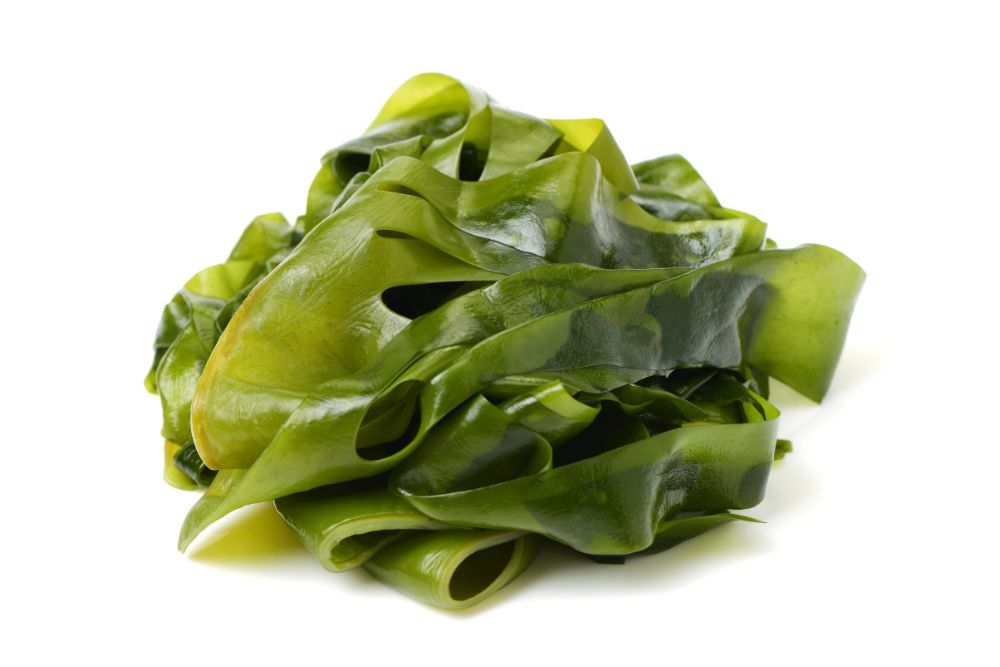In the ever-evolving world of nutrition, one superfood has been making waves for centuries, seaweed. The health benefits of seaweed are unparalleled, offering a natural solution to numerous health challenges. Known as a nutrient powerhouse, seaweed is a staple in many cultures for its unique ability to enhance health and well-being. From supporting heart health to aiding in weight loss, the health benefits of seaweed are as diverse as they are profound.
In this article, we will delve into the incredible health benefits of various types of seaweed, such as Nori, Kelp, Wakame, and Kombu, and why they deserve a spot in your daily diet.

What is Seaweed?
Seaweed, often referred to as marine algae, encompasses a broad group of plants and algae that thrive in oceans, rivers, lakes, and other water bodies. It is an essential food source for marine life and has been consumed by humans for thousands of years.
Historical evidence even suggests that ancient Greeks used seaweed in medicine. The most commonly known seaweeds include Nori, Kelp, Wakame, and Kombu, each offering unique health benefits.
Helps in Blood Clotting During Injury
One of the most impressive health benefits of seaweed lies in its ability to aid in blood clotting during injuries.
Rich in vitamin K, a fat-soluble nutrient, seaweed communicates with platelets in your body to halt the flow of blood from a wound.
Certain types of seaweed can even help you meet the daily recommended intake of vitamin K—90 micrograms for women and 120 micrograms for men.
For instance, a cup of kelp provides 26 micrograms of vitamin K, fulfilling a significant portion of this daily requirement. This nutrient is crucial for maintaining your overall health, particularly in the context of injury recovery.
Supports Thyroid Function

Another profound health benefit of seaweed is its support for thyroid function. Seaweed is rich in iodine and tyrosine, both essential for thyroid health. Your thyroid regulates vital functions like metabolism and heart rate, making it a critical component of your overall health.
A well-nourished thyroid helps maintain energy levels and stabilizes body weight. Inadequate nutrition for the thyroid can lead to fatigue, swelling, and sudden weight changes.
Moreover, maintaining a healthy thyroid can be a powerful tool in preventing conditions like depression.
Aids in Digestion
Seaweed’s positive impact on digestion is another key health benefit worth highlighting. It has a mild laxative effect, which is beneficial for maintaining a healthy digestive system.
Seaweed stimulates the release of digestive enzymes, aiding in nutrient absorption and fat metabolism. This process supports the growth of beneficial stomach bacteria, shields your stomach lining against harmful bacteria, and promotes smooth digestion.
Promotes Heart Health
Promoting heart health is among the most notable health benefits of seaweed. Seaweed is packed with vitamins, minerals, antioxidants, and anti-inflammatory properties that work together to reduce the risk of heart disease.
Wakame, in particular, is effective at reducing cholesterol levels and body weight, both of which positively impact heart health.
Incorporating seaweed into your diet is a wise choice for anyone looking to protect their heart.
Assists in Weight Loss

Weight management is another significant health benefit of seaweed, particularly kelp. Kelp is loaded with alginate, a natural fiber that aids digestion and reduces fat absorption in the body.
Consuming seaweed can help control fat digestion, making it an excellent addition to a weight loss plan.
The fiber in seaweed also helps you feel full faster and for longer periods, preventing overeating and helping you shed those extra pounds.
Boosts Energy Levels
Seaweed’s ability to boost energy levels is one of its most immediate health benefits.
High in iron, seaweed supports the production of energy needed for day-to-day activities. Iron also nourishes your circulatory system, improving blood flow to your tissues.
Low iron levels can lead to iron-deficiency anemia, characterized by decreased energy, pale complexion, and shortness of breath.
Incorporating seaweed like kelp or wakame into your diet can help prevent these symptoms and keep your energy levels high.
Enhances Brain Function

Improving brain function is another exceptional health benefit of seaweed. Kombu seaweed, in particular, is a great source of glutamate, one of the most essential transmitters for brain function.
Glutamate plays a vital role in brain cell communication, and regular consumption can lead to enhanced cognitive function and better memory retention. This is especially beneficial for older people and those diagnosed with Alzheimer’s or dementia.
Strengthens Bones
Bone health is yet another area where the health benefits of seaweed shine. Seaweed is one of the best non-dairy sources of calcium, a mineral essential for bone growth and repair.
As you age, bone density naturally decreases, increasing the risk of fractures. Consuming seaweed can help mitigate this risk by providing the necessary calcium to maintain strong and healthy bones.
Kelp and Wakame are particularly beneficial, containing around 60 milligrams of calcium, which contributes to your daily calcium needs.
Supports Dental Health

Seaweed also offers significant benefits for dental health. The extracts in seaweed have been appreciated for their preventative effects against cavity formation.
The anti-inflammatory properties of seaweed improve the function of your salivary glands and make oral tissues more resistant to damage. Certain enzymes in seaweed can even attack and remove plaque, making seaweed a valuable ally in dental care.
Promotes Anti-Aging
The anti-aging properties of seaweed are among its most sought-after health benefits. Whether applied topically or ingested, seaweed is excellent for combating acne and signs of aging. It contains minerals like calcium, zinc, iron, sodium, potassium, and magnesium, which reduce inflammation and protect your skin from dehydration, free radicals, and sun damage.
Additionally, the vitamin C in seaweed supports collagen production, while natural niacin helps with hyperpigmentation and blemishes.
Improves Eyesight
Improving eyesight is another noteworthy health benefit of seaweed. Seaweed is rich in vitamin A, which plays a crucial role in preventing ocular degeneration and night blindness.
Vitamin A is also used by lung tissue to guard against similar tissue degeneration.
Furthermore, seaweed contains small amounts of essential omega-3 fatty acids, which are beneficial for eye health.
Spirulina seaweed, in particular, stands out for its ability to protect eyesight, thanks to the powerful nutrient astaxanthin.
Regulates Blood Sugar Levels

For those with diabetes or concerned about blood sugar levels, the health benefits of seaweed extend to blood sugar regulation.
The high fiber content in seaweed helps regulate blood glucose and insulin levels, making it a valuable food for managing diabetes.
Incorporating seaweed into your diet can increase your fiber intake without significantly boosting calorie consumption.
Seaweed has also been shown to reduce markers of type 2 diabetes, such as high blood sugar.
Boosts Mood
Last but certainly not least, boosting mood is an intriguing health benefit of seaweed. Chlorella, a type of seaweed, has been found to positively impact symptoms of depression and anxiety, particularly in patients suffering from major depressive disorder.
High-quality chlorella supplements are readily available and can be a valuable addition to your mental health regimen.
You can also incorporate chlorella into a vinaigrette dressing, masking its strong taste while reaping its health benefits.
The Dangers of Overconsumption

While seaweed provides numerous health benefits, excessive intake can lead to serious health issues. High iodine levels in seaweed, if consumed beyond 1.1 grams daily, can cause thyroid gland enlargement, nausea, vomiting, and skin issues.
Those on blood-thinning medications should avoid vitamin K-rich seaweed, as it could reduce medication effectiveness.
Additionally, individuals with kidney problems might experience adverse effects due to the potassium content in seaweed. To prevent these issues, consult with a healthcare professional before adding seaweed to your diet.
Exploring Edible Seaweed Varieties
Seaweed offers various edible varieties, each bringing unique flavors and health benefits to your table.
Oganori (Sea Moss)
Oganori, also known as sea moss, features dark purple hues and is commonly pickled or used in salads. It’s also a primary source for agar-agar, a gelatin alternative.
Kombu
Kombu, a brown seaweed, is a staple in Japanese cuisine. It’s used in making dashi, a flavorful broth, and also available in powdered form for kombucha tea.
Nori
Nori is perhaps the most recognizable seaweed, often used in sushi. It comes in dark green or black pressed sheets, which also make a tasty snack.
Wakame
Wakame boasts a sweet taste and silky texture, making it ideal for salads and miso soup. It’s sold dried and salted, expanding significantly during cooking.
Dulse
Dulse resembles red cabbage and has a unique bacon-like flavor when cooked. It’s highly nutritious, offering twice the nutrients of kale.
Sea Lettuce
Sea lettuce, dark green and leafy, is best enjoyed raw in soups and salads. Cooking it too long can result in a bitter taste, so it’s often used as a topping.
Umi Budo (Sea Grapes)
Umi Budo, or sea grapes, offers a fresh, caviar-like burst when eaten. It’s one of the few seaweed varieties sold fresh, often enjoyed in salads or as a garnish.
Conclusion
The health benefits of seaweed are both diverse and profound, ranging from heart health and weight management to improved brain function and mood enhancement.
Incorporating seaweed into your diet can be a game-changer for your overall health. As you explore the benefits of seaweed, consider also incorporating other nutrient-rich foods like matcha and moringa for additional health benefits.
The benefits of matcha include enhanced metabolism and mental focus, while moringa benefits your immune system and overall vitality.
Disclaimer
Remember, moderation is key, and it’s always best to consult with a healthcare professional before making any significant dietary changes.




